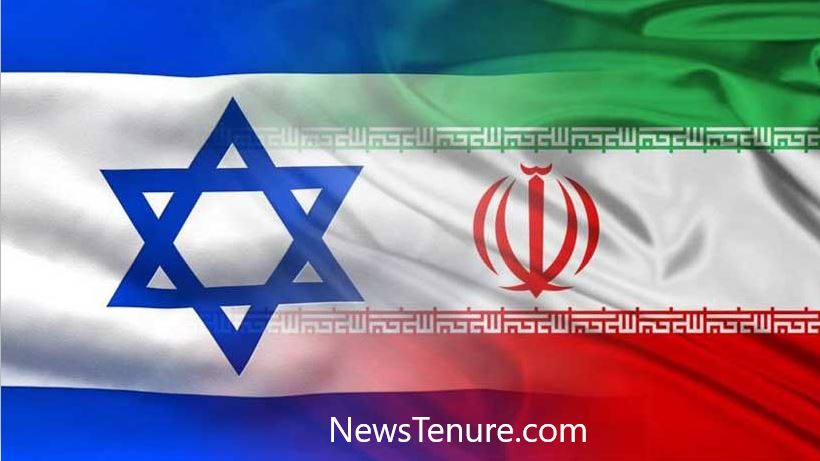The ongoing tensions between Israel and Iran have been a subject of global concern, with the potential for significant ramifications Tensions in the Middle East. This article delves into the complex dynamics and underlying factors driving Israel’s perceived targeting of Iran, shedding light on the geopolitical landscape and the potential consequences of such actions.
Historical Context:
The animosity between Israel and Iran can be traced back to the Islamic Revolution in 1979. When Iran’s political landscape underwent a significant shift. Since then, the two nations have been engaged in a war of words and proxy conflicts, reflecting ideological differences, regional power struggles, and geopolitical ambitions.
Security Concerns:
Israel’s targeting of Iran primarily stems from perceived security threats. Israel sees Iran’s nuclear program and its support for proxy groups, such as Hezbollah and Hamas, as direct challenges to its national security. Israeli officials have repeatedly expressed concerns about Iran’s nuclear ambitions and the potential for Iran to acquire nuclear weapons, which they argue would pose an existential threat to Israel.
Regional Power Struggles:
The rivalry between Israel and Iran also plays out in the broader context of regional power struggles. Both countries seek to expand their influence and assert dominance in the Middle East. Iran’s support for various proxy groups, particularly in Lebanon, Syria, and Palestine, has been a source of contention for Israel, who views it as a threat to its regional interests.
The Role of International Relations:
The involvement of international actors, including the United States, further complicates the Israel-Iran dynamic. The U.S. withdrawal from the Iran nuclear deal, known as the Joint Comprehensive Plan of Action (JCPOA), and the subsequent reimposition of sanctions on Iran, have heightened tensions in the region. Israel has supported the U.S. stance and has actively sought to prevent Iran from obtaining nuclear capabilities.
Implications and Consequences:
Targeting Iran would have significant implications for regional stability and global security. The potential escalation of hostilities could lead to a wider conflict, affecting not only Israel and Iran but also neighboring countries and the broader international community. Such a scenario could have severe humanitarian consequences and further destabilize an already fragile region.
The Pursuit of Diplomatic Solutions:
While tensions persist, diplomatic efforts and negotiations remain crucial for resolving the Israel-Iran conflict. International bodies and diplomatic channels, such as the United Nations and regional organizations, play a vital role in facilitating dialogue and de-escalating tensions. Engaging in constructive dialogue and finding common ground is essential to achieving long-term stability and addressing the underlying concerns of both countries.
Military Considerations:
Israel’s targeting of Iran involves military considerations in assessing potential threats and planning defensive or preemptive measures. Given Iran’s geopolitical positioning, its support for proxy groups, and its pursuit of advanced military capabilities, Israel views Iran as a key regional rival that must be closely monitored and deterred. Israel’s military strategy may include intelligence gathering, surveillance, and, if deemed necessary, targeted strikes to neutralize perceived threats.
Cyber Warfare and Sabotage:
In addition to conventional military actions, Israel has been reported to engage in covert activities against Iran’s nuclear program and infrastructure through cyber warfare and sabotage. These clandestine operations are aimed at disrupting Iran’s nuclear ambitions and impeding its technological advancements. Cyber attacks, such as the Stuxnet virus, have been attributed to joint Israeli-American efforts to target Iran’s nuclear facilities.
Regional Alliances and Partnerships:
Israel’s targeting of Iran is influenced by its regional alliances and partnerships. Israel has cultivated relationships with countries such as Saudi Arabia, the United Arab Emirates, and other Gulf states that also perceive Iran as a threat. These alliances create a regional coalition against Iran’s influence and support Israel’s efforts to counter Iranian activities in the region.
Global Concerns and Diplomatic Efforts:
The tensions between Israel and Iran have garnered international attention and concern. The global community, including major powers like the United States, has a vested interest in preventing a full-blown conflict between the two countries. Diplomatic efforts, such as negotiations and sanctions, have been employed to address Iran’s nuclear program and regional ambitions. However, finding a lasting resolution remains a challenge due to divergent interests and entrenched positions.
Potential Consequences and Escalation:
The targeting of Iran by Israel carries the risk of triggering a wider regional conflict. Any military action or escalation could lead to a chain reaction, involving Iran’s allies, neighboring countries, and international players. The consequences could include increased violence, humanitarian crises, disruption of global energy markets, and further destabilization of the Middle East.
Promoting Dialogue and Diplomatic Solutions:
Despite the challenges, diplomatic efforts and dialogue remain essential for mitigating tensions and finding peaceful resolutions. Encouraging all parties to engage in constructive dialogue, negotiation, and compromise. That is crucial to addressing the underlying issues driving the Israel-Iran conflict. International organizations and mediators should play an active role in facilitating communication and promoting confidence-building measures.
Conclusion:
Israel’s targeting of Iran reflects Tensions in the Middle East. That is complex interplay of security concerns, regional dynamics, and geopolitical ambitions. The military considerations, cyber operations, and regional alliances shape Israel’s approach to countering Iran’s perceived threats. However, given the potential consequences and risks of escalation, diplomatic efforts and international cooperation must be prioritized to prevent a further deterioration of the situation.
The tensions between Israel and Iran underscore the complex geopolitical landscape of the Middle East. Israel’s perceived targeting of Iran is driven by security concerns, regional power struggles, and ideological differences. The implications of such actions are significant, with the potential for far-reaching consequences. It is imperative for the international community to encourage diplomatic efforts. Which engage in dialogue to prevent further escalation and find peaceful resolutions to the conflicts in the region.




